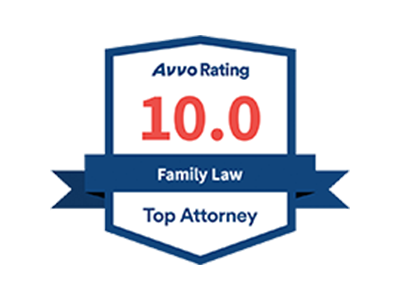
Denver Domestic Violence Lawyers
Domestic Violence & Protection Orders in Colorado
The Harris Law Firm is passionate about helping clients protect their rights and futures in a range of divorce and family law matters – especially those involving domestic violence and protection orders.
Domestic Violence & COVID-19: While domestic violence is always a timely concern, it becomes more so during difficult times, including economic downturns, unstable job markets, and the unusual circumstances created by COVID-19. Social distancing and Stay-at-Home orders issued in response to the coronavirus pandemic may also force victims to remain close to their abusers, or exacerbate existing problems in a marriage or household that put spouses, parents, or children at risk. Family Courts are still addressing the impact on domestic violence victims.
Though Colorado Courts have greatly curtailed their caseloads amid COVID-19, victims of domestic violence can still pursue needed protection orders and legal action. During these uncertain times, The Harris Law Firm is here to help.
If you are currently facing an emergency situation, please call 911. If you have questions about domestic violence – be is physical violence or threats of violence – please reach out to one of the trusted organizations listed in our Resource Center below; several of these services have 24-hour crisis lines.
If you are not currently experiencing an emergency and would like to speak with a family lawyer about domestic violence, protection orders, and your options, call (303) 622-5502 or contact us online.
What is Domestic Violence?
Domestic violence refers to a pattern of behaviors used by one partner to maintain power and control over another in an intimate relationship. It's not just physical violence; it can involve various forms of abuse, and it's about exerting dominance and control over another person.
Here are some common types of domestic violence:
- Physical Abuse: This includes hitting, punching, slapping, kicking, or any physical force causing injury or harm.
- Emotional/ Psychological Abuse: This type of abuse involves manipulation, threats, humiliation, intimidation, and verbal attacks aimed at undermining a person's self-worth and mental health.
- Sexual Abuse: Involves coercing or forcing someone to engage in sexual acts without their consent. It could also involve demeaning someone’s sexuality or reproductive decisions.
- Financial Abuse: Controlling finances, withholding money, preventing someone from working, or forcing financial dependence can be a form of abuse.
- Digital Abuse: Using technology to intimidate, harass, or control a partner, such as stalking through social media, monitoring their devices without consent, or spreading rumors online.
- Isolation: This involves cutting off a person from their support system, like family and friends, limiting their contact or activities outside the home.
Recognizing these types of abuse is crucial for early intervention and support for those experiencing domestic violence.
What to Do If You Are a Victim of Domestic Violence
If you or a loved one is experiencing domestic violence in Colorado, here are steps to consider:
- Ensure Immediate Safety: If in immediate danger, call 911 or the local emergency services for immediate assistance.
- Seek Medical Help: If injured, seek medical attention. Hospitals and clinics are mandated reporters, which means they must report cases of suspected abuse.
- Contact Domestic Violence Hotlines: Reach out to local or national hotlines for support, guidance, and resources. In Colorado, the National Domestic Violence Hotline can provide assistance and connect you with local resources. The hotline number is 1-800-799-SAFE (7233).
- Find Safe Shelter: Seek refuge in a safe place, such as a domestic violence shelter or a friend/relative's house where you feel secure. In Colorado, there are shelters and safe houses specifically designed for those fleeing domestic violence.
- Report to Law Enforcement: Consider filing a police report. Law enforcement can help provide protection and legal assistance. Documenting incidents of abuse is crucial for legal purposes.
- Get Legal Help: Consider seeking legal advice and assistance. There are legal aid organizations in Colorado that specialize in domestic violence cases and can help with protective orders, custody, and other legal matters.
- Create a Safety Plan: Plan how to stay safe in various situations, including when leaving, if you're still in the relationship, or after leaving. This plan may include securing important documents, setting up a safe word with trusted friends or family, and knowing where to go in case of emergency.
- Access Support Services: Seek counseling or support groups for emotional and psychological help. There are organizations in Colorado that offer counseling and support specifically for domestic violence survivors.
Remember, your safety is the priority. It's essential to reach out for help and support. Organizations and services in Colorado are available to assist and guide individuals experiencing domestic violence toward safety and healing.
Domestic Violence & Your Family Law Case
It is an unfortunate fact that many family law cases involve domestic violence or threats of violence between parties in an intimate relationship, household, or family. Colorado courts take matters of spousal and family violence very seriously and provide victims with a clear path to obtain the protection and legal support they need.
At The Harris Law Firm, our award-winning attorneys have the experience to handle a range of domestic violence matters that have family law implications. This includes:
- Assistance with Protection Orders
- Divorce Proceedings
- Enforcement of Court Orders
- Court Order Violations (i.e. Protection Order Violations)
- Post-Decree Modifications
- Child Custody & Parenting Time (Visitation)
- Property Distribution
What Are Protection Orders?
Protection orders are legally enforced court orders that prohibit a person from being near or communicating with another person. Commonly known as restraining orders, protection orders are enforced by every law enforcement agency and court, regardless of the state of origin. If you have a protection order in Colorado and move to California, for example, the protection order still applies.
In cases of domestic violence, protection orders provide victims with validation of their concerns, as well as peace of mind for their personal safety, and the safety of their children or loved ones.
Although these orders are ultimately paperwork which must still be enforced by law enforcement and / or courts, they send a powerful message to abusers – making it clear they can and will be held accountable for their behavior. Protection orders can also:
- Keep abusers at a real, enforceable distance;
- Prohibit abusers from patronizing certain places, including a victim’s workplace and children’s schools;
- Forbid communication of any kind, including communication by phone, text, e-mail, or social media;
- Prohibit the transferring or sale of certain assets;
- Support family law actions, including divorce, property division, and modifications.
Common Types of Protection Orders in Colorado
In Colorado, there are several types of protection orders available to victims of domestic violence to ensure their safety:
- Temporary Protection Orders (TPO): These are emergency orders issued by a judge when someone alleges immediate danger due to domestic violence. TPOs are meant to provide short-term protection while waiting for a court hearing for a permanent protection order. They typically last for a few weeks until the court hearing.
- Permanent Protection Orders (PPO): After a court hearing where both parties have a chance to present evidence, a judge may issue a PPO. This order can last for a longer duration, often years, and specifies conditions such as prohibiting contact, staying away from certain locations, or attending counseling. PPOs aim to provide ongoing protection for the victim.
- Emergency Protection Orders (EPO): These orders can be requested by law enforcement officers when they respond to a domestic violence incident. EPOs are issued by judges over the phone and are temporary, usually lasting until the next business day when the court can review the case further.
How to Get a Protection Order in Colorado
To file a protection order, plaintiffs must make two court appearances:
- To declare the need for a protection order and why; and
- For the defendant to object or argue why a restraining order is not necessary.
If a protection order is filed, then it is presumed to be permanent unless the plaintiff has children with the defendant, and they have not filed for divorce within 120 days. After 120 days, the court order does not apply.
Colorado Courts will continue to hear petitions for temporary civil protection orders and permanent protection orders during the COVID-19 crisis. If you need legal assistance, The Harris Law Firm can help.
The Harris Law Firm: Legal Support in Domestic Violence Cases
The Harris Law Firm is comprised of compassionate and highly experienced attorneys who believe it is a privilege to help victims of violence stand up against their abusers, and provide comprehensive legal counsel and support for their courageous actions. Our firm cares about the well-being of our clients, and is helps clients navigate all aspects of their legal journeys – from protection orders and divorce actions, child custody, asset and debt division, and more.
With over 250 years of combined experience and a commitment to fighting zealously on behalf of domestic violence victims, The Harris Law Firm is here to help. Contact us to speak with an attorney.
Domestic Violence & Child Abuse Resources
SafeHouse Denver:
www.safehouse-denver.org
303-318-9989 (24 hour crisis line)
National Domestic Violence Hotline:
www.thehotline.org
1-800-799-SAFE (7233) (24 hour crisis line. Chat available)
Colorado Child Abuse and Neglect Hotline:
www.co4kids.org
844-CO-4-KIDS (24 hour crisis line)
The Center for Trauma & Resilience:
traumahealth.org
303-894-8000 (English), 303-718-8289 (Spanish) (24 hour crisis line)
The Crisis Center, Douglas County:
www.twcfoc.org
303-688-8484
Women In Crisis / The Family Tree, Jefferson County:
www.thefamilytree.org
303-420-6752
Project Safeguard:
www.psghelps.org
720-827-3282
Gateway Battered Women’s Services, Arapahoe County:
www.gatewayshelter.org
303-343-1851
Violence Free Colorado:
www.violencefreecolorado.org
303-831-9632
Recommended Reading:

The Harris Law Firm Difference
WE CARE ABOUT OUR CLIENTS, OUR TEAM, & OUR COMMUNITY
Since 1993, our commitment has been to provide the best possible client outcomes through compassionate and effective representation. If you are facing a divorce or related family law matter, contact our helpful, compassionate, and understanding attorneys to request a legal evaluation or you can submit your information to ask a legal question. We look forward to helping you!
-
Our Community
The Harris Law Firm supports the legal, local and international community. Through deliberate strategic giving efforts, we work together to bring strength, happiness and empowerment to Colorado and beyond. WE CARE about our role in the world around us.
-
Our Team
We celebrate the many individual strengths that make up The Harris Law Firm team. We encourage growth while also promoting a collaborative working environment. WE CARE about our team and strive to ensure an environment of collegiality, appreciation and consistent professional development.
-
Our Clients
You come to us for guidance, support and assistance at a trying time. We take this responsibility very seriously. You deserve a high level of service and excellent legal representation. WE CARE about your challenges, solutions and process for resolution.

Our Testimonials
Hear it from Our clients
-
"I AM THRILLED and relieved and so ready to move forward."I AM THRILLED and relieved and so ready to move forward. Thank you, everyone, for your hard work on behalf of my sweet daughter. God bless you!!- Jeni
-
"I want to thank you from the bottom of my heart."Sangeetha, I want to thank you from the bottom of my heart for all that you did to help me get this settlement. Thank you for trying to keep the hours down on this case. You are truly more than an attorney. In this case somewhat of a super hero. Thanks again.- Mark
-
"My family and I deeply appreciate it."Thank you both for everything you have done to help me have my daughter in my life. My family and I deeply appreciate it.- Paul
-
"I would like to thank the team for your patience with us through what has been a very difficult process for us both."We had a successful conclusion to all of our work this morning. The court commented on the fine work that had been done using a combination of the collaborative process and our independent efforts. I would like to thank the team for your patience with us through what has been a very difficult process for us both.- Mark
-
"I am grateful that you represented me because you are smart, talented, generous and kind, and I want to thank you for being you!"I am grateful that you represented me because you are smart, talented, generous and kind, and I want to thank you for being you!- Rachel
-
"I am so grateful for your professionalism"I am so grateful for your professionalism- Linda
-
"I can not ever thank you enough."You have helped my family so much....there are no words.- M.P.
-
"First... let me say how MUCH I love and appreciate Peggy!"First... let me say how MUCH I love and appreciate Peggy!- Andrea








